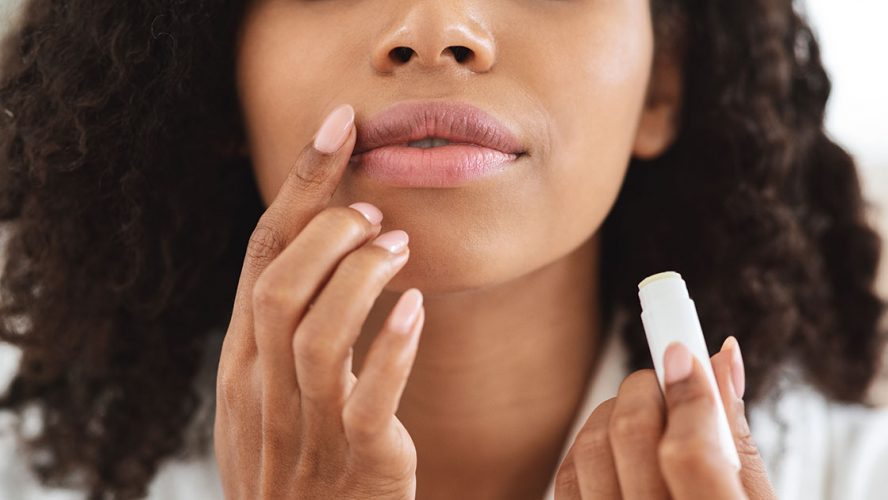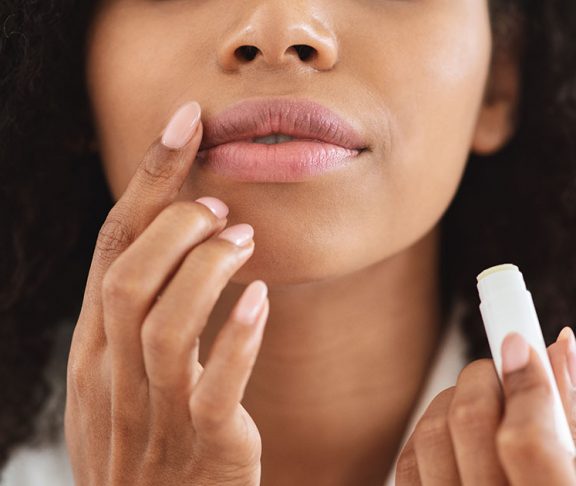Before stocking up on winter skincare products, check out these tips to protect your skin from the cold while minimizing your exposure to potentially harmful chemicals.
While the weather outside may be frightful, your skin can stay delightful. As temperatures and humidity drop across much of the country, spending time outside can cause dry skin and cracked lips.
Heated homes, schools, and office buildings just exacerbate these problems, so we slather on moisturizers, creams, and lip balms for relief. But some of those personal care products contain ingredients linked to health harms, which may pose much more serious problems than chapped lips.
Before stocking up on winter skincare products, check out these tips to protect your skin from the cold while minimizing your exposure to potentially harmful chemicals.
1. Wear sunscreen
As winter approaches and the days get shorter, sunshine seems scarce. You might think it’s possible to skip sunscreen with shorter days, but even during the winter, it’s vital to protect your skin from harmful ultraviolet radiation.
Ultraviolet A, or UVA, rays may damage your skin, regardless of the season, and have been linked to a higher risk of skin cancer, aging, and harm to the immune system. UVA rays can penetrate clouds and even pass through glass.
Ultraviolet B, or UVB, rays, which are largely responsible for sunburn and skin redness, continue to wreak havoc on your skin year-round. Though more intense from spring to early fall, these rays can reflect off snow and ice, making them a threat to you and your family while you’re building snowmen or enjoying ski slopes at higher altitudes.
Wear sunscreen on exposed parts of your body, especially your face. Choose an SPF product with the active ingredient zinc oxide, which offers better broad-spectrum protection; the capacity to block both UVA and UVB rays.
Be aware of the SPF labeled on products. In October, EWG scientists found sunscreens tested in a laboratory provided on average a meager 24 percent of UVA protection compared to their labeled SPF value. That’s much lower than what’s required of sunscreens sold in Europe. Sunscreens using zinc oxide products performed the best overall.
Check out EWG’s Guide to Sunscreens to find healthier products for you and your family, including a list of the best-rated sunscreens.
2. Moisturizer and lotion
Moisturizer and lotion are cold-weather essentials for keeping exposed skin from getting too dry. If you live somewhere without much moisture in the air or where the humidity drops, choose a thick and hydrating option. And if you prefer a product with fragrance, make sure those ingredients are disclosed and free of hazards.
Your face can be extra sensitive to the cold air, especially since it’s hard to cover up. You want to protect your face but also be cautious about what you put on it. Shield your skin from harmful UV rays by choosing moisturizers with an SPF.
You can also check out the scores for daily-use moisturizers in EWG’s Skin Deep® database. Skin Deep is EWG’s easy-to-search database that scores cosmetics and personal care products based on the hazards associated with their ingredients.
Or look for the EWG VERIFIED™ mark on the product. The mark is awarded to personal care items that meet our strictest standards for health and ingredient transparency.
3. Lip balm
The cold air and biting wind outside, coupled with heated air indoors, can cause the delicate skin of your lips to dry, flake and crack. Chapped lips can be painful.
Lip balm should be a mainstay of your winter skincare routine, but no matter how careful you are, it’s hard to avoid ingesting a little bit of your lip product when you eat, drink, or talk. So it’s crucial to choose one made with fewer potentially harmful ingredients.
And it’s always a good idea to pick a lip balm with an SPF for some extra protection, especially if you’re spending time in the snow or on ice.

